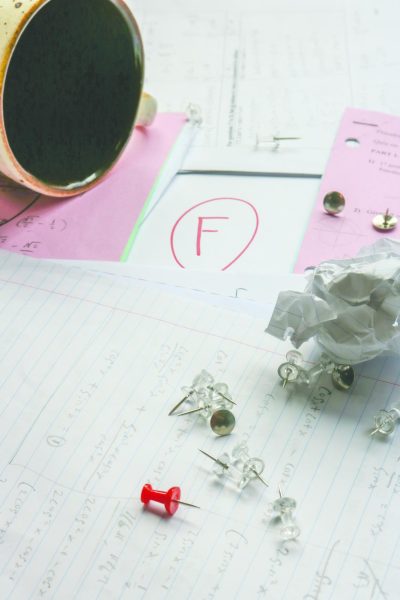Work piles up, papers need grading, dozens of students need personalized comments by the end of the week. There are responsibilities in and out of school. Classes need planning, chaperons are required for dances, intensives are a mountain of work. Teaching, needless to say, can be exhausting.
English teacher Carl Faucher stresses that much of the difficulty lies on the back end of teaching.
“The grade expectations and the comments can be stressful because it’s a very rigid expectation in terms of timeline,” Faucher said. “You have to get grades in now, comments in now, and that doesn’t always fit with what’s happening in the classroom.”
 Pressure from a heavy workload can cause stress and even burnout among overworked faculty. 43 teachers responded to an anonymous survey by the Puma Press. In that survey, 42% of the teachers surveyed admitted to working more than fifty hours a week. 49% claimed that they would experience moderate to severe burnout by the end of the semester. Nationally, 68% of teachers noted workload as the primary cause of stress, according to Crown Counseling.
Pressure from a heavy workload can cause stress and even burnout among overworked faculty. 43 teachers responded to an anonymous survey by the Puma Press. In that survey, 42% of the teachers surveyed admitted to working more than fifty hours a week. 49% claimed that they would experience moderate to severe burnout by the end of the semester. Nationally, 68% of teachers noted workload as the primary cause of stress, according to Crown Counseling.
“I think teaching is naturally stressful because there are so many parts to it,” Spanish teacher Cora Hofstetter said. “One thing you learn pretty early in teaching is that not everything can be perfect. That can be frustrating. That can cause stress. I’d say there’s too much stress.”
One stressful aspect of teaching can be the multifaceted nature of planning classes.
“Some days, I don’t get to plan lessons as thoroughly as I’d like to,” Hofstetter said. “There’s a lot that goes into planning lessons: the structure, thinking about when students need breaks, thinking about making sure everyone gets a chance to speak.”
Hofstetter also said that the high expectations for grades among UPrep students adds to stress.
“The attitude of perfectionism can lead to burnout,” Hofstetter said.
Academic Council member Keston Gruhl claims that students’ anxiety around grading can lead to feelings of exhaustion for the faculty who instruct them. He’s heard that when students request teachers change their grades, “those conversations were the worst part of their job,” Gruhl said.
Teacher stress and burnout can reciprocally affect the student body.
“There’s gradually less of a tolerance [for misbehavior,] especially for junior teachers,” Gruhl said. “It’s not the teachers’ fault; it’s partially the effect the students have. If you have a bunch of really stressed out students, the teacher is going to be more stressed. If students come in without emotional stability, it can affect the way teachers are.”
Faucher believes that there can be a correlation between the stress felt by students and teachers. However, he also stressed the importance of professionalism in himself and his colleagues.
“But I also think that it’s really important for teachers to filter out whatever burnout they’re feeling and not pass it back to the kids,” Faucher said.

Graphics: Lucas Keppler


